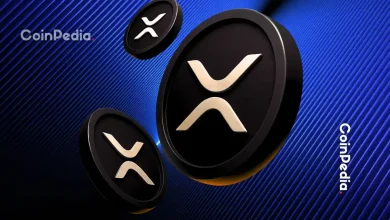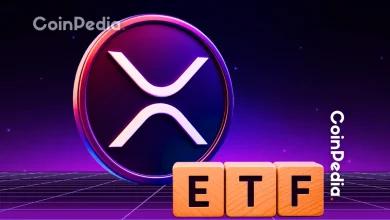
Public companies now hold $100B+ in crypto reserves, signaling a structural shift in corporate treasury strategies.
DATCOs leverage equity premiums, staking, and yield programs to expand holdings, reshaping global crypto-capital markets.
Crypto markets in 2025 are riding a wave of renewed optimism. Capital is rotating aggressively into digital assets, driven by easing macro uncertainty, institutional inflows, and a sustained appetite for alternative stores of value.
Against this backdrop, a new corporate strategy is taking shape, with publicly traded companies that treat crypto holdings not as a speculative bet, but as a core balance‑sheet strategy.
Galaxy Research’s latest report, The Rise of Digital Asset Treasury Companies, reveals that this phenomenon is no longer niche. Collectively, these Digital Asset Treasury Companies (DATCOs) hold more than $100 billion in Bitcoin, Ethereum, and other tokens, marking a structural shift in how corporations deploy capital.
$100B+ in Corporate Crypto Reserves
According to the report, DATCOs control around 791,662 BTC, worth roughly $93 billion, and 1.31 million ETH, valued at about $4 billion. These holdings represent nearly 4% of Bitcoin’s supply and 1.1% of Ethereum’s. The scale rivals some sovereign reserves, underscoring how deeply digital assets have penetrated corporate finance.
Bitcoin remains the dominant asset, yet a growing number of DATCOs are expanding into Ethereum and other Layer‑1 tokens. For Ether‑heavy treasuries, staking provides yield on idle assets, turning corporate balance sheets into passive income engines.
Meanwhile, altcoin-based DATCOs, such as SharpLink Gaming, BitMine, GameSquare, and others, are distinguishing themselves with yield-enhanced treasury programs that go beyond capital appreciation
Strategic Capital Deployment
DATCOs operate differently from passive investment vehicles like ETFs. Many raise capital through at‑the‑market (ATM) equity programs when their shares trade at a premium to net asset value, effectively allowing them to acquire more crypto per dollar raised. Others tap private placements, PIPE deals, or SPAC mergers to accelerate treasury accumulation.
This capital‑market arbitrage has proven highly lucrative. Galaxy highlights firms that have built billion‑dollar unrealized gains simply by scaling during favorable market conditions.
Expanding Footprint and Market Impact
While the United States remains the epicenter of DATCO activity, the trend is spreading internationally. Access to deep U.S. capital markets has enabled rapid scaling, but global exchanges are now seeing similar corporate strategies emerge. This expansion broadens liquidity for digital assets and strengthens the link between equity valuations and crypto prices.
Risks and the Road Ahead
The DATCO model is not without fragility. A sudden collapse in equity premiums, unfavorable regulatory changes, or capital‑market freezes could trigger forced asset sales. For now, however, their footprint outside major players like MicroStrategy remains small relative to the $3.8 trillion crypto market.
Moreover, as a concern, investors are paying far more for these companies’ shares than the actual value of the Bitcoin they hold, sometimes double or even ten times as much. Around 160 public firms now hold close to 1 million BTC, and 35 of them each own more than $120 million worth. New DAT company pitches are popping up almost daily, fueling the hype.
Never Miss a Beat in the Crypto World!
Stay ahead with breaking news, expert analysis, and real-time updates on the latest trends in Bitcoin, altcoins, DeFi, NFTs, and more.
FAQs
DATCOs are 160+ public firms holding $100B+ in crypto (791K BTC, 1.3M ETH) as core treasury assets, per Galaxy Research.
DATCOs use equity premiums to buy crypto at scale, generating $1B+ unrealized gains and staking yields (for ETH holdings).
Yes – DATCOs now control 4% of BTC supply, creating concentrated buying pressure but also potential large sell risks if strategies shift.
Unlikely – Even $100B in corporate holdings represents <5% of BTC’s $2.3T market cap. Decentralized mining/trading prevent single-entity control.
Minimally – Corporate holdings remain small vs network nodes/miners. Core protocol rules prevent alteration regardless of treasury strategies.
Trust with CoinPedia:
CoinPedia has been delivering accurate and timely cryptocurrency and blockchain updates since 2017. All content is created by our expert panel of analysts and journalists, following strict Editorial Guidelines based on E-E-A-T (Experience, Expertise, Authoritativeness, Trustworthiness). Every article is fact-checked against reputable sources to ensure accuracy, transparency, and reliability. Our review policy guarantees unbiased evaluations when recommending exchanges, platforms, or tools. We strive to provide timely updates about everything crypto & blockchain, right from startups to industry majors.
Investment Disclaimer:
All opinions and insights shared represent the author's own views on current market conditions. Please do your own research before making investment decisions. Neither the writer nor the publication assumes responsibility for your financial choices.
Sponsored and Advertisements:
Sponsored content and affiliate links may appear on our site. Advertisements are marked clearly, and our editorial content remains entirely independent from our ad partners.








